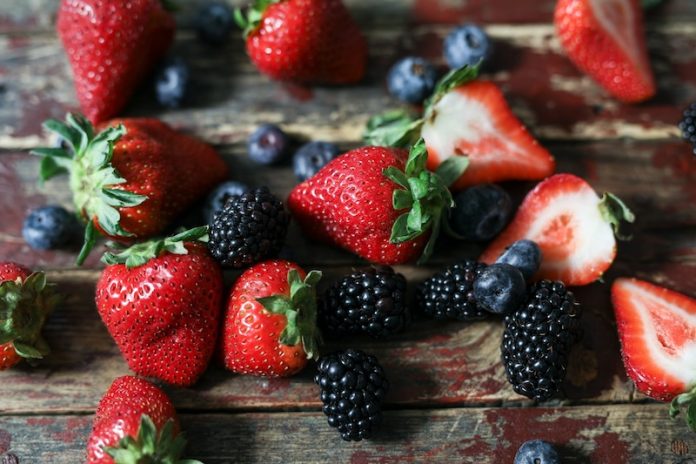
A new large-scale study has found that eating a wide variety of plant-based foods rich in flavonoids—such as tea, berries, apples, and dark chocolate—may help reduce the risk of serious illnesses like heart disease, type 2 diabetes, cancer, and brain-related conditions.
The research also suggests that people who include a diverse mix of flavonoid-rich foods in their diets may live longer.
Flavonoids are natural compounds found in many colorful fruits, vegetables, and plant-based drinks. These include common foods like blueberries, strawberries, oranges, grapes, green or black tea, apples, red wine, and even dark chocolate.
Scientists already knew that flavonoids are good for health, but this new research highlights something different: it’s not just about how much you eat, but how many different types of flavonoids you get from different foods.
The study was carried out by researchers from Queen’s University Belfast, Edith Cowan University in Perth, and the Medical University of Vienna and Universitat Wien. It was published in the journal Nature Food. The team tracked more than 120,000 adults between the ages of 40 and 70 for over 10 years to see how their flavonoid intake related to their health over time.
Professor Aedín Cassidy, one of the lead authors, explained that different types of flavonoids have different effects on the body. Some can lower blood pressure, others improve cholesterol levels, and many reduce inflammation. Because of this, eating a variety of flavonoids can offer more benefits than sticking to just one type of flavonoid-rich food.
The researchers found that people who consumed about 500 milligrams of flavonoids per day had a 16% lower risk of dying from any cause, as well as a roughly 10% lower risk of developing heart disease, type 2 diabetes, and respiratory diseases.
To give an example, 500 milligrams of flavonoids is about what you’d get from drinking two cups of tea. However, those who got this amount from multiple different sources—like tea and berries and apples—did even better than those who got the same amount from just one or two sources.
Dr. Benjamin Parmenter, another lead author, said the key takeaway is variety. Instead of only drinking tea, for example, it’s better to eat a mix of flavonoid-rich foods. Different foods contain different types of flavonoids, and the body benefits more when it gets a wider range of them.
The study also supports the popular advice to “eat the rainbow,” meaning include fruits and vegetables of many colors in your meals. Brightly colored foods are more likely to contain flavonoids and other helpful nutrients.
Professor Tilman Kuhn, who also worked on the research, said this study is the first to show how diversity of flavonoid intake—rather than just quantity—plays a major role in long-term health.
These findings come at a time when new dietary guidelines are being developed to recommend increasing flavonoid intake. Dr. Parmenter said that these new results also suggest that variety should be part of those guidelines. Simply adding more colorful plant-based foods to your meals could make a big difference.
Professor Cassidy added that this kind of diet change is both simple and realistic for most people. Swapping out less healthy snacks for apples, adding berries to breakfast, or having a cup of tea instead of sugary drinks are easy steps that can boost both the amount and diversity of flavonoids in your diet.
In summary, this study provides strong evidence that eating a greater variety of flavonoid-rich foods—rather than just focusing on a single type—can lead to better overall health and a longer life. It’s a clear message that small, colorful changes to your diet can make a meaningful difference in how you feel today and how healthy you are in the future.
If you care about nutrition, please read studies about a breakfast linked to better blood vessel health, and drinking too much coffee could harm people with high blood pressure.
For more information about health, please see recent studies about unhealthy habits that may increase high blood pressure risk, and results showing plant-based protein foods may help reverse diabetes.
The research findings can be found in Nature Food.
Copyright © 2025 Knowridge Science Report. All rights reserved.



